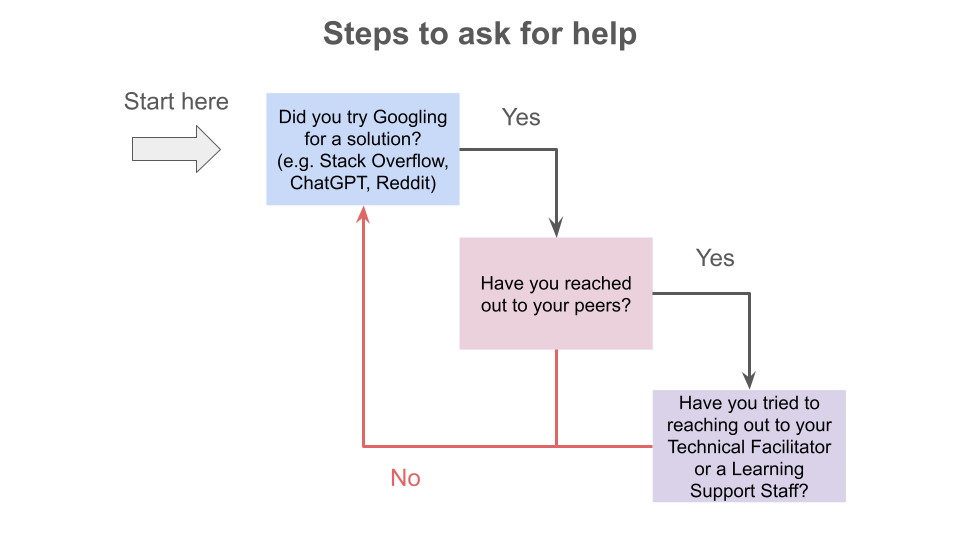- Description
- Learning Outcomes
- Assignments
- Contacts
- Delivery of the Learning Module
- Schedule
- Requirements
- Resources
- Folder Structure
- Acknowledgements
This module introduces the essentials of sampling, probability, and survey methodology. This includes simple probability samples, stratified sampling, cluster sampling, dealing with non-response, estimating, and survey quality. Participants will consider the theoretical foundations of different sampling approaches, as well as practical applications of this knowledge towards contexts such as market research, political polling, and the Canadian census. Participants will engage in analysis using the Python programming language.
By the end of the module, participants will be able to: * Implement simple probability samples. * Evaluate complicated sampling procedures and the tradeoffs involved. * Identify and understand sources of error or inaccuracies in data as a result of sampling strategies. * Assess survey quality.
| Assignment | Due Date |
|---|---|
| Sampling and Reproducibility in Python | Friday, July 12 |
| Questionnaire Design (Part A) | Saturday, July 13 |
| Questionnaire Design (Part B) | Friday, July 19 |
| Data Documentation Comparison Worksheet | Saturday, July 20 |
Questions can be submitted to the #cohort-3-help channel on Slack
- Technical Facilitator:
- name and pronouns:
Ciara,She/Her - email:
ciara.zogheib@mail.utoronto.ca
- name and pronouns:
- Learning Support Staff:
- name:
Jarlath - email:
jarlathbr@gmail.com - name:
Kasra - email:
vakiloroayaei.kasra@gmail.com - name:
Amanda - email:
waiyuamanda.ng@mail.utoronto.ca
- name:
This module will include live learning sessions and optional, asynchronous work periods. During live learning sessions, the Technical Facilitator will introduce and explain key concepts and demonstrate core skills. Learning is facilitated during this time. Before and after each live learning session, the instructional team will be available for questions related to the core concepts of the module. Optional work periods are to be used to seek help from peers, the Learning Support team, and to work through the homework and assignments in the learning module, with access to live help. Content is not facilitated, but rather this time should be driven by participants. We encourage participants to come to these work periods with questions and problems to work through. Participants are encouraged to engage actively during the learning module. They key to developing the core skills in each learning module is through practice. The more participants engage in coding along with the instructional team, and applying the skills in each module, the more likely it is that these skills will solidify.
| Live Learning Session | Topic | Assignments | Resources |
|---|---|---|---|
| 1 | Introduction, Probability | Slides 1 Slides 2 |
|
| 2 | Populations, censuses, surveys, and observational data; Essentials of sampling, asking and observing | Sampling and Reproducibility in Python | Slides 1 |
| 3 | Simple probability samples, Stratified sampling, Systematic Sampling | Questionnaire Design (Part A) | Slides 1 Slides 2 |
| 4 | Cluster Sampling, Errors | Slides 1 Slides 2 |
|
| 5 | Survey Quality, Questionnaire Design, Ethics | Questionnaire Design (Part B) | Slides 1 Slides 2 |
| 6 | Privacy | Data Documentation Comparison Worksheet | Slides 1 |
- Participants are not expected to have any coding experience; the learning content has been designed for beginners.
- Participants are encouraged to ask questions, and collaborate with others to enhance their learning experience.
- Participants must have a computer and an internet connection to participate in online activities.
- Participants must not use generative AI such as ChatGPT to generate code in order to complete assignments. It should be used as a supportive tool to seek out answers to questions you may have.
- Participants must have VSCode installed with the following extensions:
- We expect Participants to have completed the steps in the onboarding repo.
- We encourage participants to default to having their camera on at all times, and turning the camera off only as needed. This will greatly enhance the learning experience for all participants and provides real-time feedback for the instructional team.
Feel free to use the following as resources:
- Probability Cheatsheet 1
- Probability Cheatsheet 2
- Probability Cheatsheet 3
- LLN Demo
- Amazon Exercises
- Multiple Imputation Exercises
- Survey Sampling Methods
- Population vs Sample
- Survey Margin of Error: What is it? How does it relate to sample size?
- Reproducibility in Research
- Probability Playlist
.
├── .github
├── 01_materials
├── 02_activities
├── 03_instructional_team
├── 04_cohort_three
├── .gitignore
├── LICENSE
├── README.md
└── steps_to_ask_for_help.png- .github: Contains issue templates and pull request templates for the repository.
- materials: Module slides and interactive notebooks (.ipynb files) used during learning sessions.
- activities: Contains graded assignments, exercises, and homework to practice concepts covered in the learning module.
- instructional_team: Resources for the instructional team.
- cohort_three: Additional materials and resources for cohort three.
- .gitignore: Files to exclude from this folder, specified by the Technical Facilitator
- LICENSE: The license for this repository.
- README.md: This file.
- steps_to_ask_for_help.png: Guide on how to ask for help.
